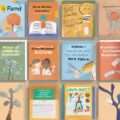Therapy exercises, worksheets, and self-help tools are essential components of various therapeutic processes. They serve as practical aids that empower individuals to engage actively in their journey toward mental health and emotional well-being. In this article, we’ll explore some effective therapy exercises, the role of worksheets in therapy, and various self-help tools that can complement traditional therapy.
Understanding Therapy Exercises
Therapy exercises are structured activities designed to foster self-reflection, awareness, and growth. They can be used in individual or group settings and are often tailored to address specific issues such as anxiety, depression, or stress management.
Worksheets in Therapy: A Practical Approach
Worksheets are tangible resources that therapists provide to clients to help them track progress, identify patterns, and practice new skills. These tools can be used both within sessions and as homework assignments to reinforce learning.
Self-Help Tools for Mental Wellness
Self-help tools are resources that individuals can use independently, often alongside traditional therapy, to support their mental health. These might include books, apps, or online courses that provide guidance and structure for personal development.
Integrating Exercises and Worksheets into Daily Life
Incorporating therapy exercises and worksheets into one’s daily routine can enhance the therapeutic process. Consistent practice can lead to greater self-awareness and more robust coping mechanisms.
Choosing the Right Tools for You
When selecting therapy exercises and self-help tools, it’s important to consider personal preferences, the nature of one’s challenges, and the goals of therapy. A therapist can provide personalized recommendations based on an individual’s specific needs.
FAQs
What are some common therapy exercises?
Common therapy exercises include journaling, mindfulness meditation, cognitive restructuring, and exposure techniques, among others. These exercises help individuals work through emotions and build healthy coping skills.
Can worksheets be effective in therapy?
Yes, worksheets can be very effective in therapy as they provide a structured way for clients to explore their thoughts and feelings, document their progress, and apply what they’ve learned in therapy to real-life situations.
Are self-help tools a replacement for therapy?
Self-help tools are not a replacement for professional therapy but can be a valuable supplement to traditional therapy. They offer additional support and resources for personal growth.
How often should I practice therapy exercises?
The frequency of therapy exercises can vary depending on an individual’s therapeutic goals and needs. It’s best to follow a therapist’s guidance on how often to engage in specific exercises.
How do I know which self-help tools are right for me?
Finding the right self-help tools often involves trial and error. It’s important to seek resources that resonate with your personal experiences and align with your goals. A therapist can also recommend tools that are likely to be beneficial for your situation.









